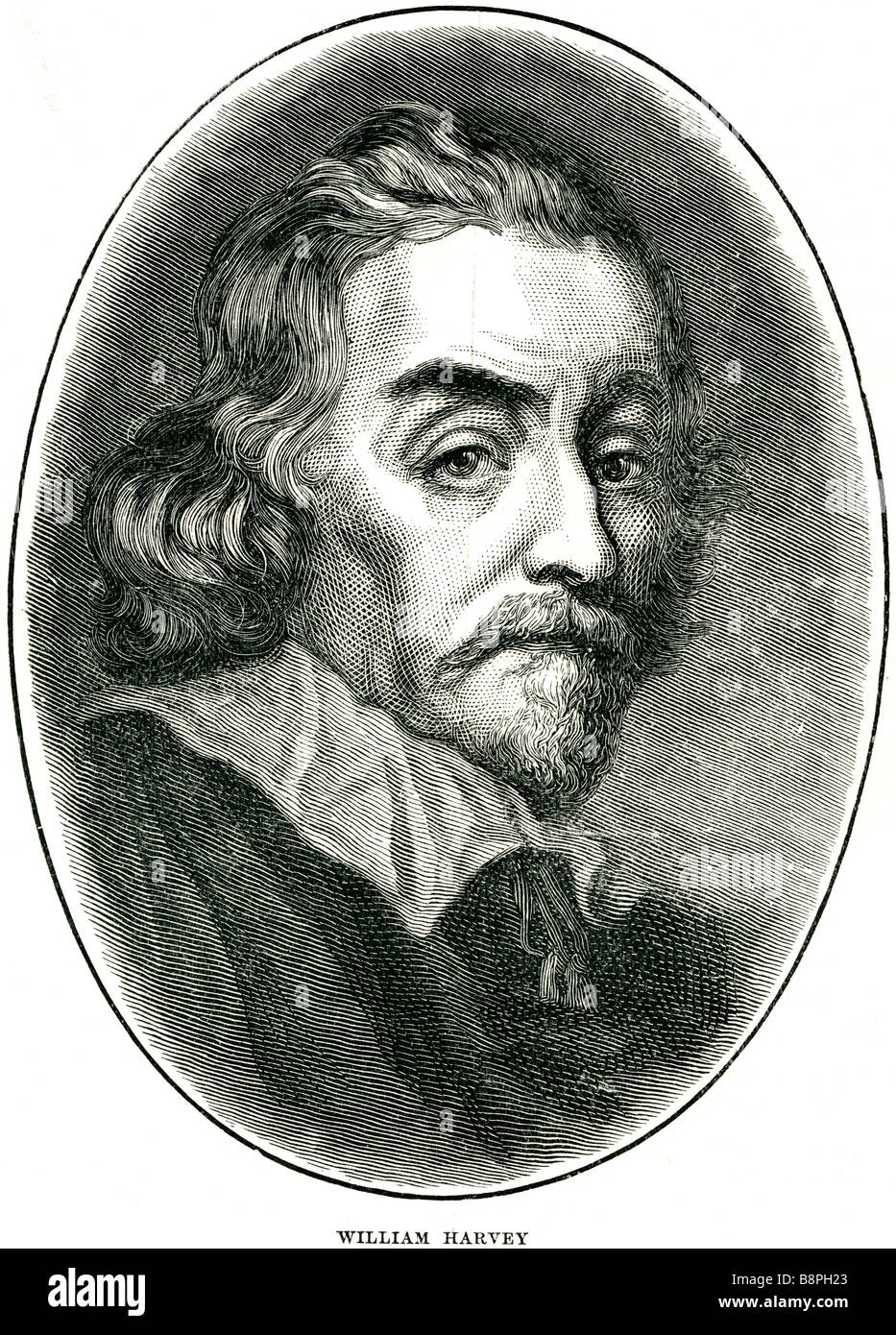William Harvey (1 April 1578 – 3 June 1657) was an English physician who was the first in the Western world to describe correctl

Image details
Contributor:
19th era / Alamy Stock PhotoImage ID:
B8PH23File size:
51.6 MB (5.2 MB Compressed download)Releases:
Model - no | Property - noDo I need a release?Dimensions:
3598 x 5012 px | 30.5 x 42.4 cm | 12 x 16.7 inches | 300dpiMore information:
William Harvey (1 April 1578 – 3 June 1657) was an English physician who was the first in the Western world to describe correctly and in exact detail the systemic circulation and properties of blood being pumped around the body by the heart William Harvey was born at home (the nearest hospital to Folkestone is named after him) to a prosperous yeoman, Thomas Harvey, of Folkestone, Kent (later a Levant Company merchant), and wife Joane Halke, of Hastingleigh Kent (1555-1556 – 8 November 1605), and educated at The King's School, Canterbury. At 16 he was awarded a medical scholarship (founded by Matthew Parker, Archbishop of Canterbury, the first such scholarship in England, for which preference was given to Kentish Men)[1] to Gonville and Caius College, Cambridge, through which he received a Bachelor of Arts degree in 1597. John Caius, who refounded the college before Harvey’s time, used to advise his students to seek some part of their medical education abroad: like him[2], Harvey went on to the University of Padua, Italy (also attended by Copernicus), where he studied under Hieronymus Fabricius, and the Aristotelian philosopher Cesare Cremonini graduating in 1602. He returned to England and married Elizabeth.C.Browne, daughter of Lancelot Browne, a prominent London physician. The couple had no children. He practiced as a physician in London, where he had an appointment at St Bartholomew's Hospital (1609–43) and became a Fellow of the Royal College of Physicians. After his time at St Bartholomew's he returned to Oxford and became Warden (head of house) of Merton College.